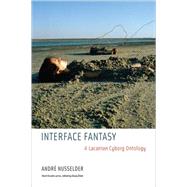
Note: Supplemental materials are not guaranteed with Rental or Used book purchases.
Purchase Benefits
What is included with this book?
| Series Foreword | p. ix |
| Acknowledgments | p. xi |
| Introducing a Psychoanalytic Theory of Cyberspace | p. 1 |
| The Question Concerning Technology and Desire | p. 9 |
| Fantasy at the Interface | p. 11 |
| Technological Eros | p. 21 |
| The Technologization of Human Virtuality | p. 31 |
| Introducing Virtuality | p. 33 |
| Virtualization (I): Language and Law | p. 38 |
| Virtualization (II): Technology | p. 46 |
| Fantasy and the Virtual Mind | p. 55 |
| öInformation Wants to Be Freeö? | p. 57 |
| Mind and Body: Descartes, Wiener, and Lacan | p. 64 |
| Information Wants Imagination | p. 70 |
| Cyborg Space | p. 81 |
| The Body in Space | p. 83 |
| Surfing the Hall of Mirrors | p. 89 |
| Displays of the Real: Reality as an Effect | p. 99 |
| Techne and Tuche | p. 101 |
| Screen and Window | p. 110 |
| Mediated Enjoyment, Enjoyed Media | p. 119 |
| The Media Perversion | p. 121 |
| Bits of Enjoyment | p. 130 |
| Subjectivity at the Interface of Meatspace and Cyberspace | p. 139 |
| Notes | p. 143 |
| References | p. 149 |
| Index | p. 163 |
| Table of Contents provided by Publisher. All Rights Reserved. |
The New copy of this book will include any supplemental materials advertised. Please check the title of the book to determine if it should include any access cards, study guides, lab manuals, CDs, etc.
The Used, Rental and eBook copies of this book are not guaranteed to include any supplemental materials. Typically, only the book itself is included. This is true even if the title states it includes any access cards, study guides, lab manuals, CDs, etc.